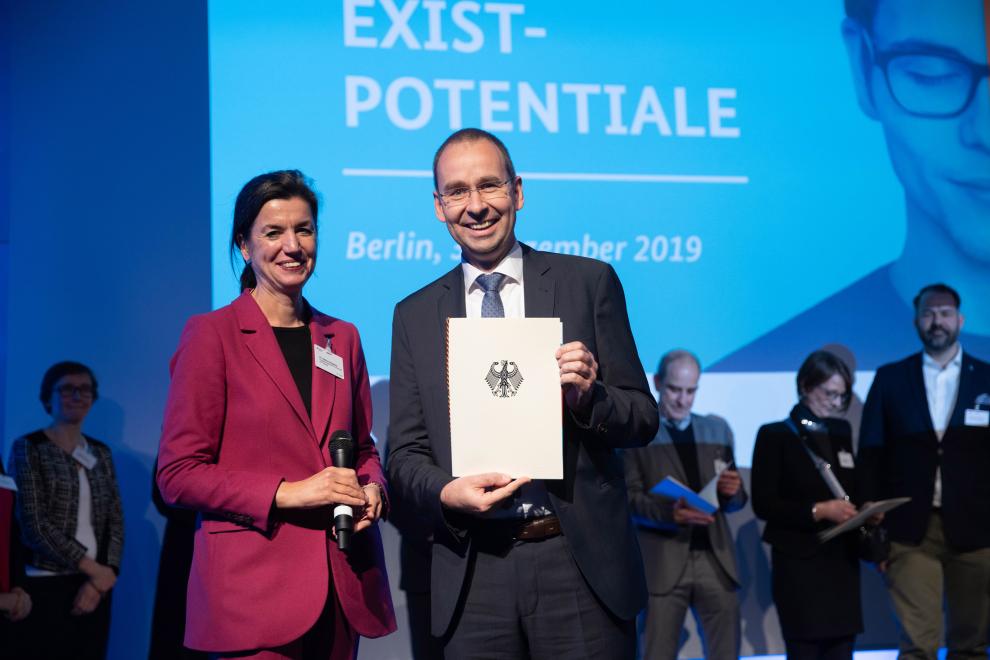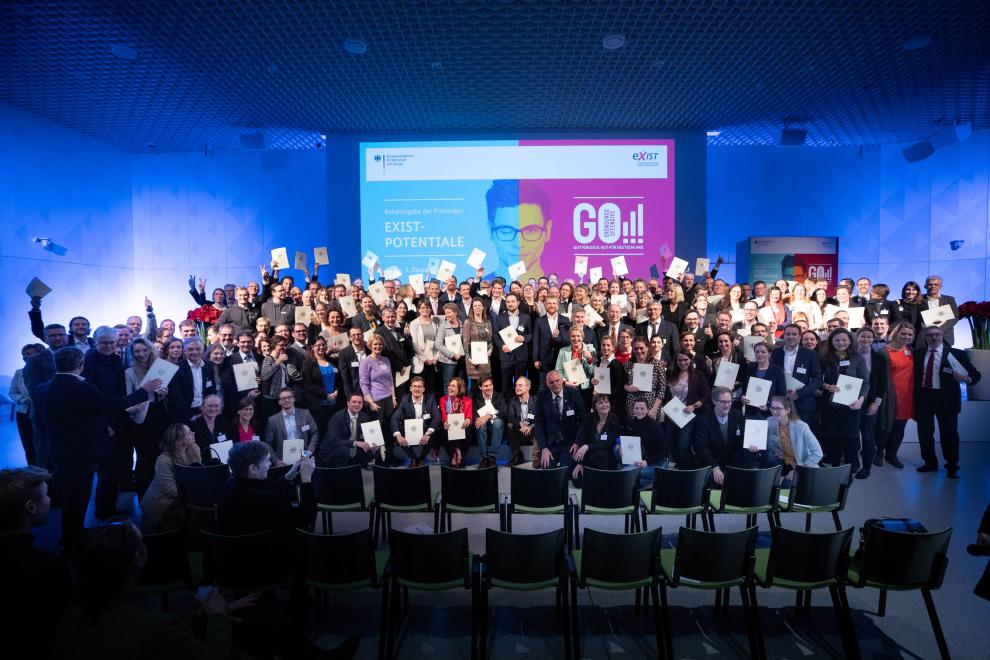Rhine-Waal University submits winning project proposal in national idea competition EXIST
Promoting start-up culture in the region
Rhine-Waal University of Applied Sciences was selected as one of the winning institutions in the national competition “EXIST-Potentiale” for its project proposal to establish a start-up culture in the region. The project aims to both enable and foster new opportunities for economic and social development in the region and at the Rhine-Waal University.
Kleve/Kamp-Lintfort, 5 December 2019: Rhine-Waal University of Applied Sciences has achieved major success at the nationwide competition “EXIST-Potentiale” of the Federal Ministry for Economic Affairs and Energy (BMWi) for its project proposal “StartGlobal – Global Spirit for Local Start-Ups”. The project seizes upon the idea of internationality as a chance for a regional start-up culture and development and leverages potential for new business ventures and entrepreneurship. The goal is to tap into and cultivate the special innovative potential found often, but not exclusively, among international students. The project is projected to start in 2020 and will be funded by the BMWi to the tune of approximately two million euros over a four-year period. Leading the project will be the University’s Centre for Research, Innovation and Transfer (ZFIT).
Motivated by the idea that knowledge transfer should also directly benefit regional development and innovation, Rhine-Waal University of Applied Sciences aims to transform itself into a living, breathing laboratory for the process of internationalising medium-sized regions with a mix of rural and urban landscapes. This new start-up culture should not be an end in itself, but rather an answer to the needs of international students on the one hand, and a means of introducing the adventuresome start-up spirit to a region not particularly characterised by it.
The project intends to channel the unique feature of Rhine-Waal University, namely its diverse and international student body, into international start-ups that benefit the region. This requires special, innovative approaches and ideas that can be developed and implemented together with regional partners. At the same time, these efforts will play a key role in anchoring start-up culture as a core strategy of Rhine-Waal University and as a motor with long-term potential for regional growth and innovation. The project will begin simultaneously at both campus locations. In the middle term, Rhine-Waal University plans to incorporate the entire Lower Rhine region into the project, producing together a visible and vibrant culture for start-ups and innovation.
“This is an enormous achievement and an important step for Rhine-Waal University. Not only was our idea selected from among over 220 total submissions, but it also gives us a wonderful starting point for intensifying our efforts to promote start-ups and spin-offs originating at our University. Key to our success will be the innovative potential of our employees, but in particular of our creative students. This makes our concept special not only in North Rhine-Westphalia, but in all of Germany as well. Together with the support of our region and our partners we will give new impetus to the innovative potential of the Lower Rhine,” remarked a pleased President Dr Oliver Lock-Grütjen about the winning proposal.
The competition EXIST-Potentiale
Start-ups have enormous strategic value for business and industry in Germany: they are producers of innovation, motors for structural transformations and creators of jobs of the future. Universities play an essential role here as forges for innovative ideas and new business ventures. The national competition EXIST-Potentiale, initiated by the Federal Ministry for Economic Affairs and Energy (BMWi), supports German universities with convincing ideas on how to secure the long-term viability of their start-up activities and potential.
The project “StartGlocal – Global Spirit for Local Start-ups” will receive funding from the Federal Ministry for Economic Affairs and Energy and the European Social Fund as part of the EXIST programme.



